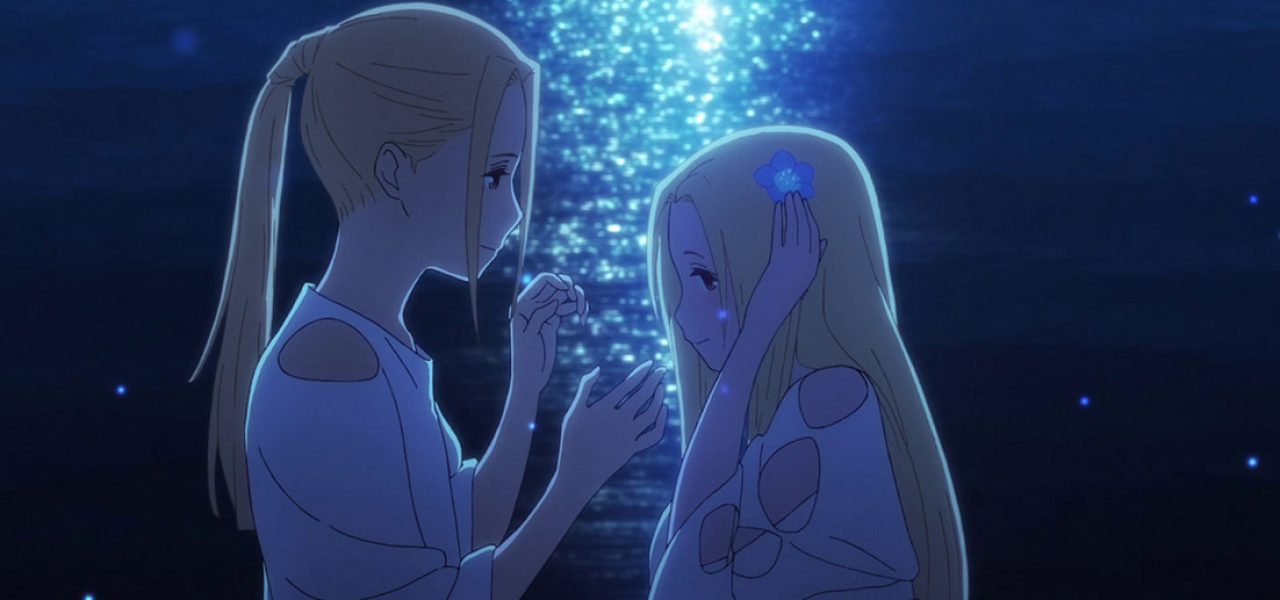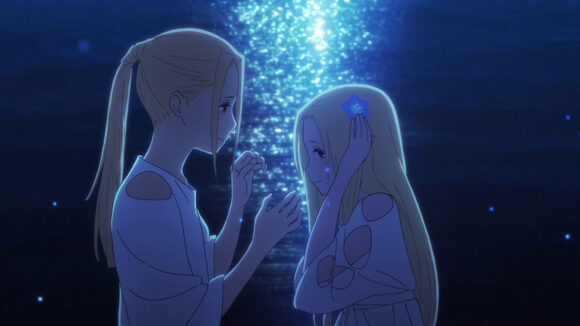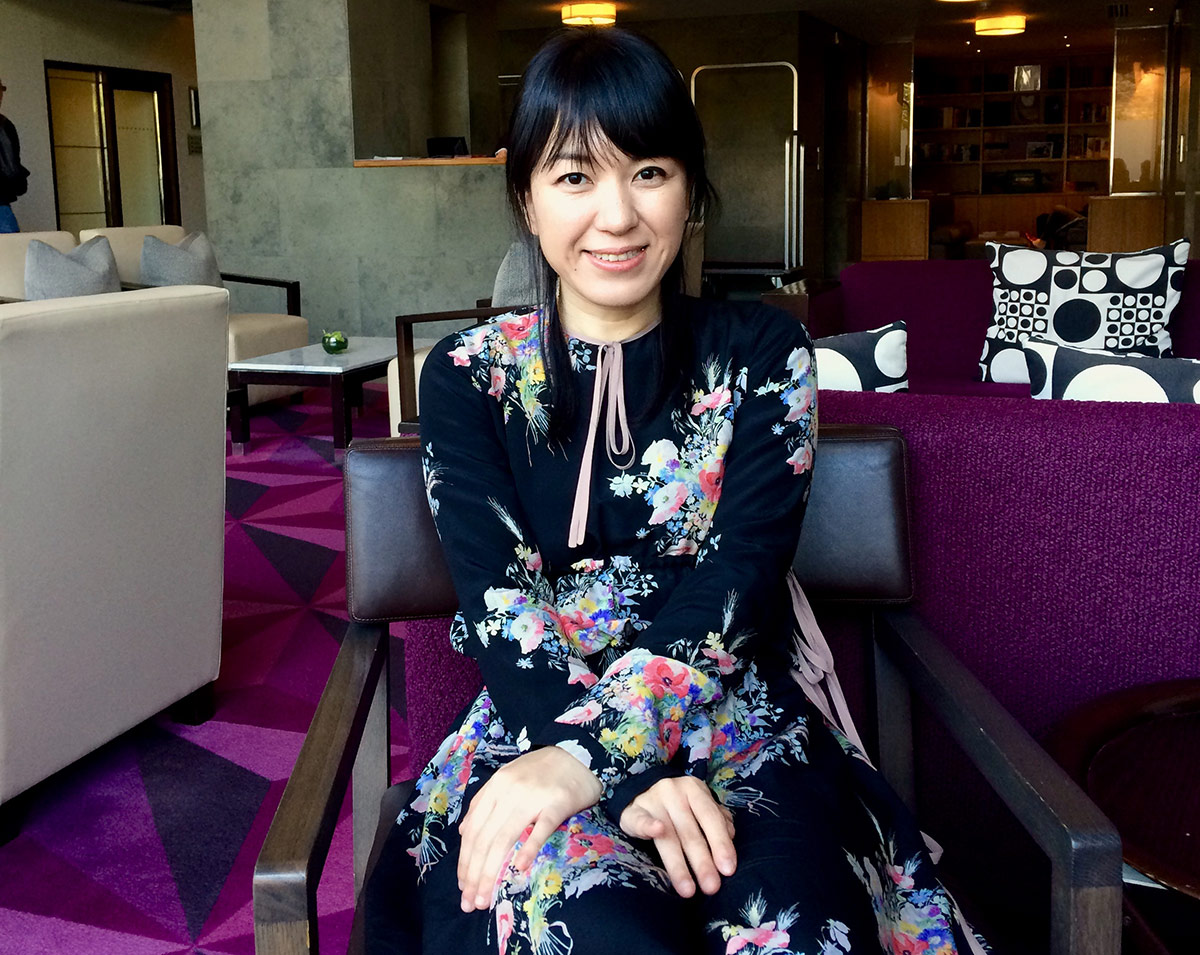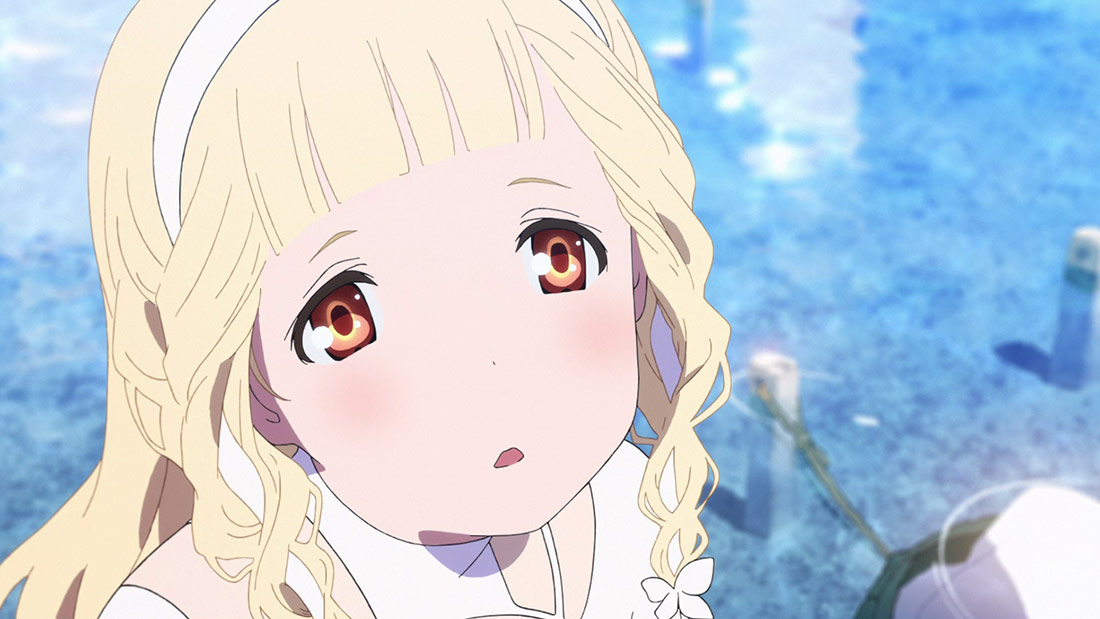

Interview: ‘Maquia’ Director Mari Okada On The Challenges Of Being A First-Time Animation Director
Mari Okada, one of the most prolific screenwriters in Japan’s animation industry, has penned the stories for upwards of four dozen animated projects for screens both big and small, including beloved features Anohana: The Flower We Saw that Day (2013) and The Anthem of the Heart (2015).
With Maquia: When the Promised Flower Blooms, opening today in North American theaters, she adds another accomplishment to her résumé: anime feature director. But transitioning from screenwriter to director wasn’t without its challenges, she told Cartoon Brew in an interview.
The film tells the heart-wrenching story of the eponymous Maquia, an elf-like being who ages slowly and retains a youthful, angelic appearance throughout the entire plot, which spans decades. She adopts a young human child, whom she then raises as her own son, but who eventually literally outgrows her and struggles to accept a mother who appears to be younger than he is.
Like Hanasaku Iroha, the 2011 anime series that brought Okada to the spotlight, and which was partially inspired by her own fraught relationship with her mother, Maquia deals with the often difficult relationship between mother and child. Okada, however, tells Cartoon Brew that her primary interest, from a storytelling point of view, was how all relationships are affected by the passage of time.
“I’m fond of [time], and maybe it’s something that naturally came to me in the past as well,” she says, referring to Anohana and Nagi-Asu: A Lull in the Sea, both of which deal with similar themes. “I wanted to take it even deeper with this feature film that I was lucky enough to be able to direct.”
Maquia producer Kenji Horikawa has collaborated with Okada on several television series, including Nagi-Asu, and the two have developed a close working relationship; Okada has referred to her colleague as a highly dependable person who is almost “like a relative.”
Horikawa, for his part, has voiced his tremendous support of her on numerous occasions, and tells Cartoon Brew how important it was to him that she have the experience of directing a feature. Horikawa’s faith in Okada’s artistic vision has certainly paid off. Since debuting to positive reviews in Japan in February of this year, Maquia has gone on to screen at several festivals, including Annecy and the Shanghai International Film Festival, where it won the prize for best animated film.

As a screenwriter, he says, Okada logically tends to focus on story rather than the visual components of the film. It follows that she provided a somewhat unique perspective as team leader. “She really was amazing at encouraging the staff members to do their jobs based on the significance of the story,” says Horikawa.
For Okada, the transition from screenwriting to directing was a logical step, but not necessarily a simple one. Previous to Maquia, she had directed live-action shorts, but never an animated feature. The most significant difference for her was the sheer duration of the project.
“It took three years, altogether,” says Okada. “In order to make this 115-minute film, it took so long, whereas when I’m just writing a script it only takes a month, or a month and a half. Within these three years, there were all these staff members involved, and so many people had to spend time and effort, and [put] a lot of thought into this one project, so it was a fresh experience for me. Of course, it was also extremely difficult.”
One of Okada’s major concerns throughout production was keeping her team organized and motivated. In her newly translated autobiography From Truant to Anime Screenwriter, Okada presents herself as a bit of a loner who struggled socially in her youth, so staying on top of interpersonal logistics was a key challenge for her.
“If somebody is having a difficult day, it’s not balanced,” explains Okada. “I knew when I was getting into directing that this whole thing was going to be all about unity and group effort. But I didn’t know [how] much the unit [depends on each individual]. It’s a puzzle, and everybody’s a piece of the puzzle.”
Though it’s true that Okada has no professional background in the visual arts, she says that she loves to draw and paint. Before dropping out of school at a young age, Okada was active in her middle school’s art club, so when it came time to preparing the storyboards for Maquia, she played a role in the process. She says that, at times, the detailed nature of her own script complicated the storyboarding process. Okada admits that hindsight is always 20/20.
“While I was creating the storyboards, I felt like, ‘Why did I put this line for this character?’” she says, laughing. “Because of this experience, now I know what to do, what not to do as a screenwriter.”

It seems, though, that Okada reveled in having so much creative control. For the first time, Okada had the power to make the film look just as she imagined when she was writing the script. She communicated her vision precisely to character designer Akihido Yoshida, as well as to the background designers.
“[In the past,] some things could be a little off from what I was imagining,” says Okada. “Because of that, this time when I was directing, I could express it a little better, in my way.”
Maquia was produced by P.A. Works, the Japanese animation studio founded by Kenji Horikawa. Original character designs were provided by Akihido Yoshida, who has done work for several video games, including Final Fantasy XIV, while character design for animation and animation direction were handled by Yuriko Ishii (Kuromukuro). Kenji Kawai, who is known best for his scores for Ghost in the Shell and Ghost in the Shell 2, composed the music.
Starting today, the film opens in the United States and Canada through distributor Eleven Arts. For a complete list of theaters showing the film, visit the ElevenArts.net.

.png)